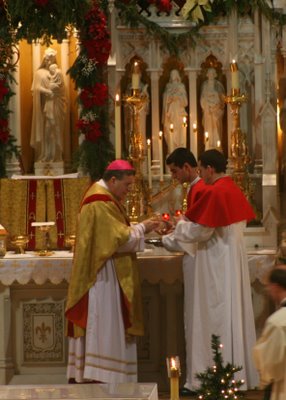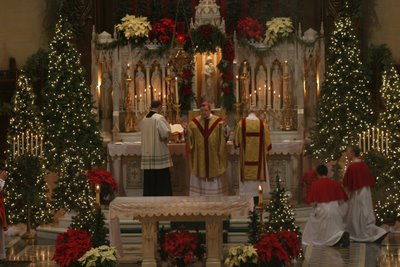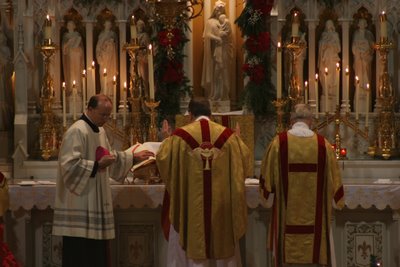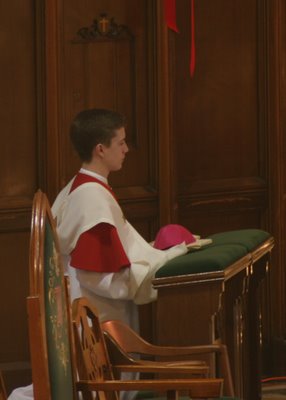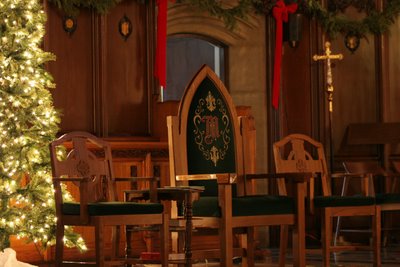 The throne in Assumption Grotto's Sanctuary, which is turned sideways, is one of several small factors making Assumption Grotto's Mass more conducive to the contemplative dimension of the Mass. The priest and the people are not making eye-contact during those parts in which he too is seated.
The throne in Assumption Grotto's Sanctuary, which is turned sideways, is one of several small factors making Assumption Grotto's Mass more conducive to the contemplative dimension of the Mass. The priest and the people are not making eye-contact during those parts in which he too is seated.Returning to the Mass which kicked-off the day with Archbishop Raymond L. Burke at Assumption Grotto as head of the Marian Catechists in a day of remembrance for Fr. John A. Hardon, SJ.
From Chapter 1 of Turning to the Lord by U.M. Lang (source: Adoremus)
Inter Oecumenici permits the Mass facing the people, but it does not prescribe it. As Louis Bouyer emphasized in 1967, that document does not at all suggest that Mass facing the people is always the preferable form of Eucharistic celebration.6
The rubrics of the renewed Missale Romanum of Pope Paul VI presuppose a common direction of priest and people for the core of the Eucharistic liturgy. This is indicated by the instruction that, at the Orate, fratres, the Pax Domini, the Ecce, Agnus Dei, and the Ritus conclusionis, the priest should turn towards the people.7 This would seem to imply that beforehand priest and people were facing the same direction, that is, towards the altar. At the priest's communion the rubrics say "ad altare versus",8 which would be redundant if the celebrant stood behind the altar facing the people anyway. This reading is confirmed by the directives of the General Instruction, even if they are occasionally at variance with the Ordo Missae.9 The third Editio typica of the renewed Missale Romanum, approved by Pope John Paul II on 10 April 2000 and published in spring 2002, retains these rubrics.10
The Deacon takes the thurible and incenses the Archbishop
Archbishop Burke in the washing of his hands.
Msgr Henry Breier, who accompanied Archbishop Burke, just before handing off the zucchetto (don't call it a beanie!!!)
In the photo below, an altar boy cradles the zucchetto of an apostolic successor during holy Mass - a special moment for one of Grotto's young men. I apologize for not knowing more about that which is draped over his shoulders and extends down to his hands. The Archbishop's mitre is below the zucchetto. I'm sure one of my many readers can give me the name of this in the comment box, and explain it a little more for the rest of us. It is apparent that these things are considered sacred, otherwise, they would not be held so reverently. I don't know if this is common everywhere, but I have only seen this when a bishop celebrates a Mass at Assumption Grotto. If it happened at any of my previous parishes, I simply don't recall - then again, it was during the more indifferent phase of my Catholic life.

